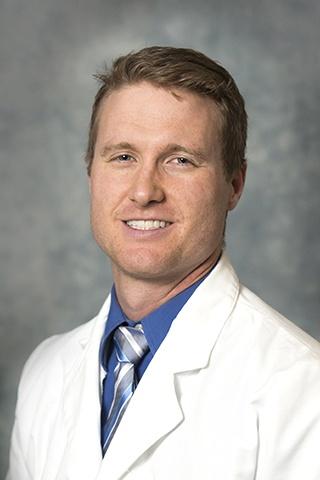Part One: Clayton Cooper, MD, MBA, second-year resident:
Each day I care for patients at Duke Family Medicine Center, in the hospital, or occasionally in a nursing home or a patient’s own home. While each individual’s story is unique, over time I have begun to see patterns in my patients:
- Delays in seeking care due to not being able afford a high deductible leading to emergency or hospital care.
- Inability to pay for medications due to skyrocketing costs.
- Traveling long distances to seek medical care due to the shortage of primary care physicians.
As a family physician, I can make a difference on a one-on-one level by helping to keep my patients healthy and address their concerns when ill, but I can also use my voice to speak on behalf of my patients to prevent the patterns I see time and time again.

These are just a few of the issues I spoke about in May 20-12 in Washington, D.C., when I met with North Carolina Representatives, Senators, or their staff as part of the Family Medicine Advocacy Summit. More than 300 family physicians and a few medical students interested in family medicine converged for two days of advocacy training and meetings with elected representatives. We spoke about the importance of funding residency training for family physicians, particularly in rural and underserved areas through increasing caps on hospital programs and extending funding for teaching health centers. North Carolina is projected to need over 1,200 additional family physicians by 2030, and the current shortages will only worsen.
We also asked for 50 million dollars to be allocated to study gun violence as a public health concern, much like studying automobile deaths lead to evidence-based laws requiring seatbelt use. Lastly and most importantly, we spoke about barriers to accessing primary care that our patients face, including ever-climbing deductibles and cost of medications which make health care unattainable even for those with insurance.
I feel privileged to have a career in which patients open up to me in very personal ways, and I am thankful that Duke Family Medicine Residency recognizes that part of being an effective family physician is being an advocate and change agent for my patients and communities. Even before I knew I had received a resident scholarship to cover my cost of attendance, I was not only given permission, but also encouraged by program leadership by program leadership to attend. The event is open to any AAFP student, resident or full physician member, and this year’s event was the largest yet. During my next two years of residency and beyond I will continue to seek opportunities to speak as the collective voice of my patients to push policy makers for a more equitable health care system that supports the health and wellbeing of all.
Read Part Two: Viviana Martinez-Bianchi, MD, FAAFP
Clayton Cooper is a second-year resident with the Duke Family Medicine Residency Program. Email clayton.cooper@duke.edu with questions.
Editor’s note: Duke Family Medicine residents guest blog every month. Blogs represent the opinion of the author, not the Duke Family Medicine Residency Program, the Department of Family Medicine and Community Health, or Duke University.
